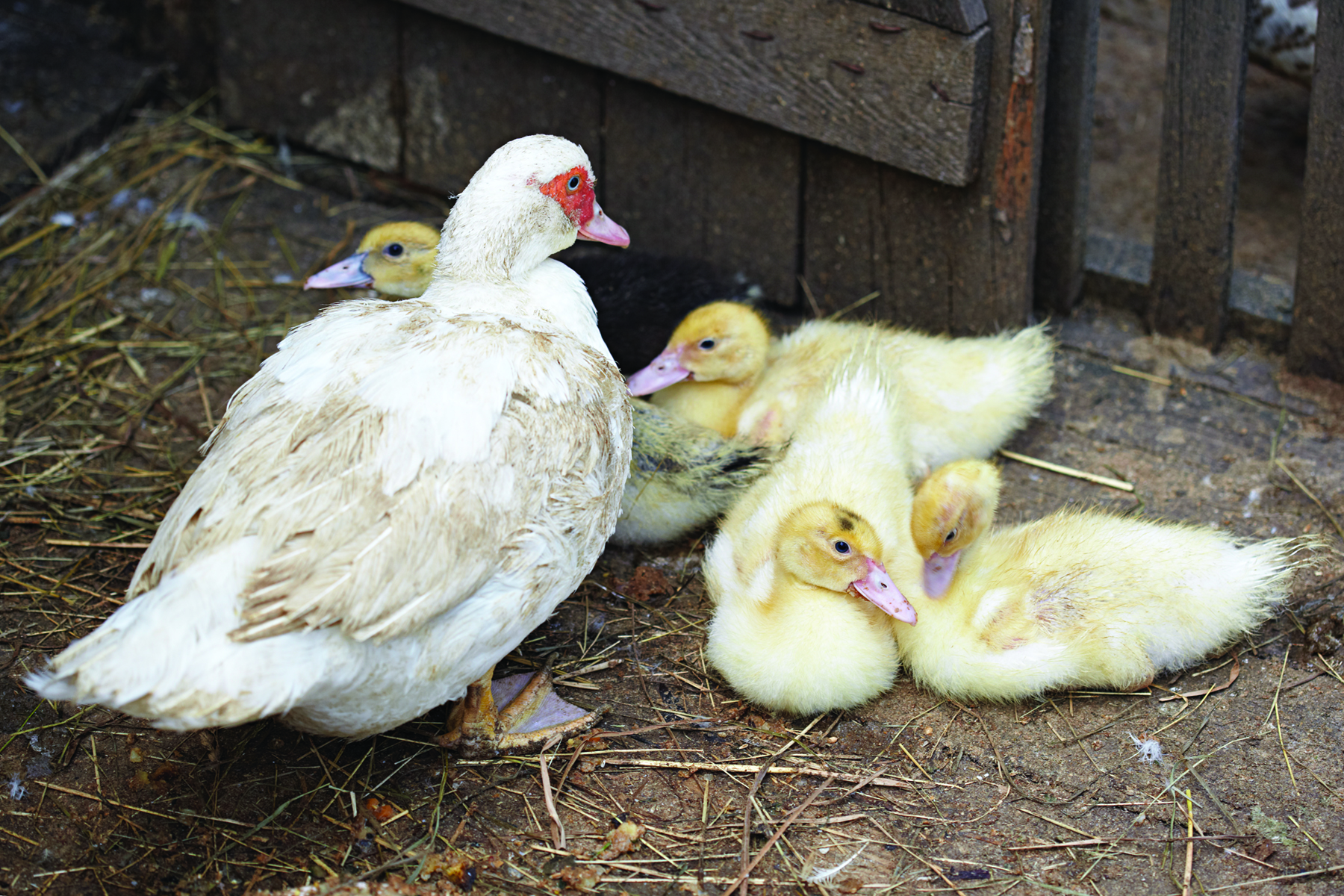How to keep ducks
From their eggs to their meat to their willingness to eat kitchen scraps, ducks are a great addition to homesteads. Wondering how to keep ducks? Find out with this excerpt from Self-Sufficiency Handbook: Your Complete Guide to a Self-Sufficient Home, Garden, and Kitchen by Alan and Gill Bridgewater.

Keeping Ducks
Why keep ducks? The answers are beautifully simple: ducks eat kitchen scraps, they lay eggs, they are tasty, and, above all, they are fun to keep. The only downside is obvious: ducks need water. A large lake would be good, but they can get by with a small pond, a stream, or even a collection of water troughs. In addition to kitchen scraps, and grit for making eggshells, they need pellets and a little fish oil in their feed to keep them in fine feather.
Decide how much space and time you have to devote to ducks as well as whether you want eggs, meat, or both, and then choose a suitable breed.
Housing
The ideal duck house is small, cozy, mobile, and easy to clean, like the traditional A-framed ark. If the ground is looking stale, simply pick the ark up by its handles and swiftly move it to a fresh location.
The area needs to be enclosed with close-mesh chicken wire. Allow about 19–24 square yards (16–20 sq m) per bird. You also need a feeder and a trough or low bucket for water. If predators (such as foxes) are active in your area, cover the enclosure with a wire-mesh ceiling
Feeding

In addition to kitchen scraps, ducks need fresh greens, grit, and either a quality feed or layer pellets (see the section on feeding chickens, pages 175–176).
Breeds
Aylesbury: Plump, white-feathered bird that produces large, white-blue-green eggs that have an excellent flavor.
Indian Runner: Good choice for rough ground if you want to allow your ducks room to run. Fine for eggs, but their meat is a bit stringy.
Khaki Campbell: Khaki-feathered bird that is one of the best breeds for laying and fair for eating. A mature bird will lay up to 300 white eggs per year.
This tutorial “Keeping Ducks,” is excerpted from Self-Sufficiency Handbook: Your Complete Guide to a Self-Sufficient Home, Garden, and Kitchen by Alan and Gill Bridgewater. Used with permission from CompanionHouse Books.
